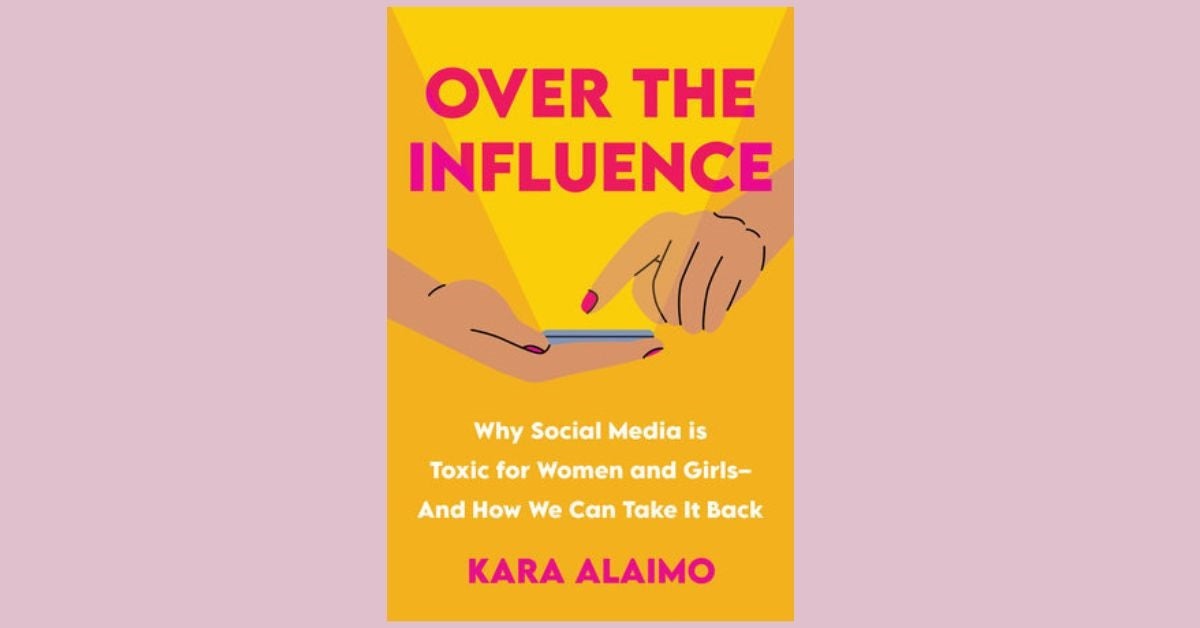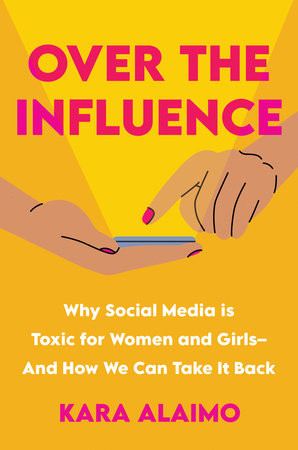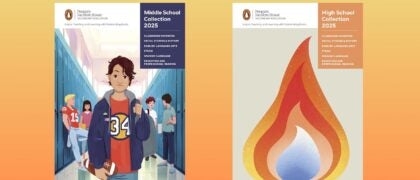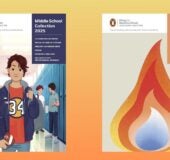By Kara Alaimo, PhD, Associate Professor of Communication at Fairleigh Dickinson University
Dear Educators,
To borrow a phrase from pop culture, today’s youth often lead their lives “extremely online.” In Over the Influence: Why Social Media is Toxic for Women and Girls – And How We Can Take It Back, students will learn how they can use social media in ways that empower themselves and protect their safety and well-being.
One of the most powerful stories I tell in the book is of Vivian, a woman who says she got her eating disorder on Instagram as a teenager after she posted a photo of herself doing a handstand and the photo was re-posted by a “fitspiration” page. Her story serves as a powerful example to students of how easy it is to fall down rabbit holes of toxic content. Now, as a young adult who works partly as a physical trainer, Vivian talks about how she realizes that the so-called “Instagram body” isn’t a realistic goal for any of us – in fact, it can usually only be achieved through surgery.
I also tell stories in the book of women who have used social media to empower themselves and others, such as by finding content on topics that helped develop their careers and building movements by amplifying posts on issues that matter to their lives. I hope this will serve as an inspiration to my young readers to think carefully about who they follow and what they consume and share on social networks.
Over the Influence also serves as an important guide for how students can protect themselves on social networks. For example, I talk about why they should never sext – those images could haunt them long into the future, and they could even be prosecuted for child pornography. I warn them of dangers they could face such as professional “sextortionists” who try to trick young people into establishing what they think are emotional relationships online, eventually coax them into sharing an intimate image, and then threaten to post it all over the internet unless they send more explicit content or money (or both).
Recently, boys at a New Jersey high school created fake nude images of their female classmates using artificial intelligence – images that are known as “deepfakes.” What struck me most in The Wall Street Journal’s reporting of the incident was that some parents seemed to think this was just youthful bad behavior. In Over the Influence, students will learn the true effects of sharing nude images of a person online. When this happens, the person is at greater risk of sexual assault, suicide and depression and often finds it harder to date, get a job, or even walk out the door of their homes. Now that it has become easy for anyone to create deepfakes online, it’s essential that children know their life-destroying repercussions.
It’s also essential for students to be able to spot misinformation online. In Over the Influence, I teach them how to verify the accuracy of content and why they should never turn to social apps for their medical information.
I also demystify the world of influencers. As I write in the book, being an influencer has become the new version of the American dream, and these days most teens would like to be one. But, contrary to the popular belief that influencers lead glamourous lives and out-earn their parents, I explain how most work incredibly long hours and never earn enough money to support themselves.
Navigating social networks is hard enough for adults, but it’s especially difficult as an adolescent. As we all know, during this time, students often struggle with insecurities and social pressures and the decision-making parts of their brains have not yet fully developed. What’s more, many of their parents didn’t use social apps in their own childhoods and are unsure what to teach their kids. I hope Over the Influence will serve as a launching pad for much-needed discussions about how social networks are impacting the lives of us all, and how students can protect themselves and use them in healthy ways.
Warm regards,
Kara Alaimo, PhD

Kara Alaimo, Ph.D. is a communication professor at Fairleigh Dickinson University. She writes frequently for CNN Opinion about the social impact of social media and issues affecting women. A former communicator at the United Nations and in the Obama administration, she lives in New Jersey with her family. For more information, visit www.karaalaimo.com and follow her @karaalaimo.






